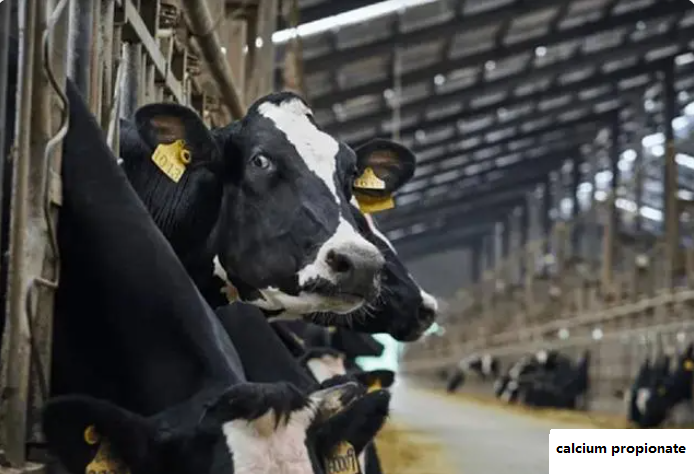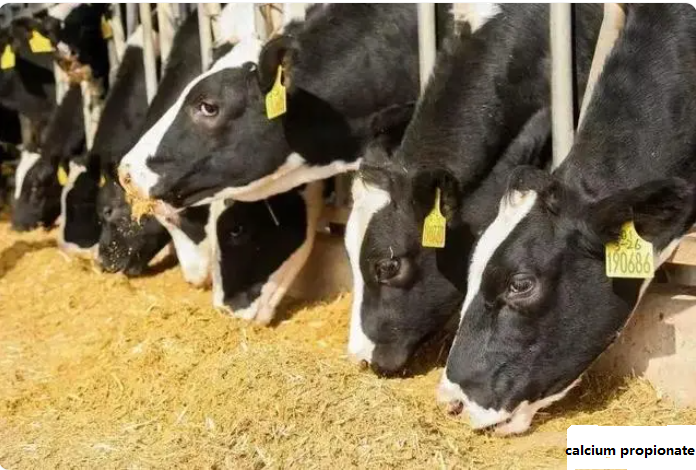What 's calcium propionate ?
Calcium propionate is a kind of synthetic organic acid salt, which has strong activity of inhibiting the growth of bacteria, mold and sterilization. Calcium propionate is included in the feed additive list of our country and is suitable for all farmed animals. As a kind of organic acid salt, calcium propionate is not only used as a preservative, but also often used as an acidifier and functional nutritional additive in feed, which plays an active role in improving animal production performance. Especially for ruminants, calcium propionate can provide propionic acid and calcium, participate in body metabolism, improve metabolic diseases of ruminants, and promote production performance.
The deficiency of propionic acid and calcium in cows after calving is easy to lead to milk fever, which leads to a decrease in milk production and feed intake. Milk fever, also known as postpartum paralysis, is mainly caused by a large decrease in the postpartum blood calcium level of dairy cows. It is a common nutritional metabolic disease in perinatal cows. The direct cause is that intestinal absorption and bone calcium mobilization cannot timely supplement the loss of blood calcium at the beginning of lactation, and a large amount of blood calcium is secreted into milk, resulting in a decrease in blood calcium level and postpartum paralysis of dairy cows. The incidence of milk fever increases with the increase of parity and lactating ability.
Both clinical and subclinical milk fever can reduce the production performance of dairy cows, increase the incidence of other postpartum diseases, reduce reproductive performance, and increase the mortality rate. It is an important measure to prevent milking fever by improving bone calcium mobilization and gastrointestinal calcium absorption through various measures from perinatal period to calving period. Among them, the low calcium diet and anionic diet in the early perinatal period (resulting in acidic blood and urine diet) and calcium supplementation after calving are common methods to reduce the occurrence of milk fever.
The pathogenesis of milk fever:
The occurrence of milk fever in dairy cows is not necessarily due to insufficient calcium supply in the diet, but may be caused by cows failing to quickly adapt to the demand for a large amount of calcium during calving (initiating the release of bone calcium into the blood), mainly due to the high sodium and potassium ions in the diet, insufficient magnesium ions and other reasons. In addition, the high phosphorus content in the diet will also affect the absorption of calcium, resulting in low blood calcium. But no matter what causes the blood calcium is too low, can be improved through the way of postpartum calcium supplement.
Lactation fever is characterized by hypocalcemia, lateral lying, decreased consciousness, cessation of rumination, and finally coma. Postpartum paralysis of cows caused by hypocalcemia will increase the risk of diseases such as metritis, ketosis, foetal retention, shift of the stomach and uterine prolapse, which will reduce milk production and service life of dairy cows, resulting in a large increase in the death rate of dairy cows
Action of calcium propionate:
Post time: Sep-11-2024





